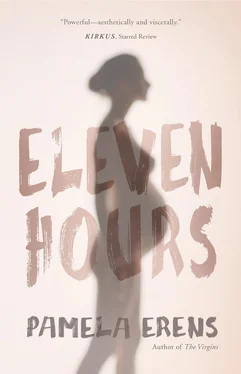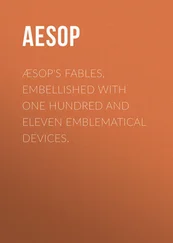The other baby continues to cry, thinly, fiercely.
“Ah, the loud twin,” says Barbara, indicating the child with her head. Franckline walks over and excuses herself to a male nurse, who allows her to view a set of twins in his care, names posted on their isolettes: Michael and Mickey. To do so she has to pass a little girl named Flower whose IV is stuck directly into her bald scalp, making her look in fact as if she has just been plucked with her stalk intact. The twins are dark-haired, and each weighs in the vicinity of four pounds. The loud twin appears to be Mickey. “Oh, shush,” says the nurse good-naturedly, expertly weaving his hands through Mickey’s leads and IVs to put the child over his shoulder and pat his back. “Always bitching about something.”
“Handsome, aren’t they?” he asks Franckline. “This is the bad one. So I hold him close to my heart.”
“But you have to pay attention to the good one, too,” Franckline scolds, smiling.
“I do, I do. But I love the bad ones the best.”
“Michael and Mickey?” Barbara says, when Franckline returns. “They’ve been here for three weeks. No one has come to see them. Not once.”
And now an alarm sounds, a rapid beeping that rises above Mickey’s wails. Barbara looks up calmly, confirming that it comes from a machine in another bay, and another nurse moves unhurriedly to adjust a lead. The NICU seems to be stirring for the new shift. A mother and father arrive to visit their child. The neonatologist on duty begins his rounds a few minutes later, along with his resident and the cardiologist and the respiratory therapist. It’s time for Franckline to go. She spends a quiet minute gazing at Baby T, trying to fix all the details in her memory: the color of her skin, the shape of her head, the way her ID bracelet hangs on her tiny wrist. There must be something too vivid in her own eyes, because when she takes her leave, Barbara gives her an appraising look. Don’t get attached , she’s warning. Don’t let it matter too much one way or the other .
On the way to post-op, Franckline checks her watch. Bernard will be putting dinner on the table soon, expecting her.
Glenda, a younger nurse, greets Franckline at Lore’s bedside. “She’s hanging in,” Glenda says. “She has a fever, but her vitals are pretty good. She’s on a Dilaudid drip.”
Franckline pulls up a chair. She takes Lore’s hot hand and holds it in her own, pressing it gently. Lore’s hair splays in damp sections against her pillow. Her skin is pale and her eyes move rapidly under the lids.
“Dr. Elspeth-Chang was just here, and a woman named Diana is on her way over,” says the nurse. “She’s Ms. Tannenbaum’s health proxy. Someone who works with her, I think.”
“May I?” Franckline asks the nurse. She goes to the door for Lore’s chart. She holds the folder on her knee and removes Lore’s birth plan.
IN THE EVENT THAT THE BABY DIES, I seek the following:
to be able to see and hold the baby for as long as I wish
not to be given tranquilizers or drugs that blunt feeling
to arrange the funeral myself
She turns back one page:
IN THE EVENT THAT THE BABY IS ILL OR HANDICAPPED, I seek the following:
I would like all procedures and any medications given to the baby to be explained to me.
I would like to touch, hold, and breastfeed the baby if possible, and as often as possible.
If my baby has a severe handicap, I would like a full discussion with the pediatrician before any treatment is embarked upon, so that I can explore all of the options.
Franckline moves back to the bed and again takes Lore’s hand. The nurse moves discreetly to the corner of the room, folds a stack of towels.
The sedated and the comatose hear what one says to them.
“Have they told you about your child, Lore?” Franckline asks. She leans in very close. “It’s a girl. She’s doing all right. She’s in the intensive care unit, and she’s breathing and her lungs are strong. Her skin is a beautiful pink, and she has the prettiest little ears. She should be off the ventilator by tomorrow. They are going to test her brain, Lore, to see if everything is all right. I know you’ve thought of everything. I know that you will know how to take care of this child no matter what. So, you must get strong again, fight off this fever, so that you can hold the baby in your arms and give it what it needs. The hospital will know what to do until then. Be easy, Lore. Be easy.” Lore’s head moves restlessly from side to side on her pillow, indicating either that she hears Franckline or else that the sounds of speech are disturbing her slumber.
At the charge desk in Maternity, Franckline speaks in low tones to Marina. Will Marina help her — again? Marina, sympathetic but hesitant, replies that there’s only Dr. Merchant right now; the others are occupied. “Someone else, please,” says Franckline. Not Dr. Merchant, no, not just after watching him loose a river of Lore’s blood, not after standing next to him as he moved and cut amid Lore’s organs. Marina peers at her assignment chart more closely. Dr. Phillips just signed out and went to change; perhaps she will be willing. Marina walks off in search of the doctor, who returns a few minutes later, looking drawn and annoyed, but gestures for Franckline to follow her into a small room down the hall. She smooths fresh paper over an examining table, and as Franckline shucks her elastic-waisted scrub pants and lies down, she becomes someone else: not a worker, not a caretaker, but another body to be opened up and peered inside of. Relax , she tells herself, as she has told so many others. The doctor squirts warm gel over Franckline’s belly and pushes it around with the ultrasound wand. She watches the screen, stubbornly silent, making neither upbeat nor worried sounds, stops, clicks to take a few images, then pushes the wand around some more. More wanding — does the child, Franckline wonders, somersault playfully away? Does it feel disruption, distress? Does its heart still beat at all? Finally the doctor tells Franckline to slide down and put her feet in the stirrups. “Sorry,” she says briskly, as she guides the probe inside. Click-click on the console.
Withdrawing the probe, Dr. Phillips announces that Franckline looks just fine; the baby is a normal size, the amniotic sac is normal, the heart is normal. The bifurcation in the uterus does not seem to be having any effect on the fetus’s development (she points to the uterus’s left-hand chamber). She hands Franckline a towel with which to wipe herself off. “I don’t see any reasons for concern here. I can’t tell you what the pains are. Might just be stress, Franckline.”
“Thank you, Doctor.”
“Take your time. Close the door behind you when you go.”
Franckline wipes and wipes until she feels dry, then pulls up her pants, fishes for the key to the locker that contains her street clothes. So things are all right for another day, another two days. Tonight, with Bernard, she will decide — again — whether to speak the news.
Lore walks down corridors searching for her child’s room. Left, right, left, right: the doors are open but there are no babies here, just grown men and women turning in their sleep, or being comforted by their families, or calling out for help. She can’t help them, not right now, her child needs her, her Soleil. At the end of a corridor, after many rooms, a stout woman in a police uniform waits expectantly to hear Lore’s business. Lore tries to explain but her tongue will not make any L ’s or R ’s, any S ’s or Th ’s. She tries to enact the exercises she knows so well. Click the tongue ten times just behind the top teeth. Relax the lips. But the L will not sound. The R will not come. R is the most difficult sound of all. Children rarely master it before age seven. She places the sides of her tongue between her back molars and presses against her upper teeth. A hissing silence.
Читать дальше












